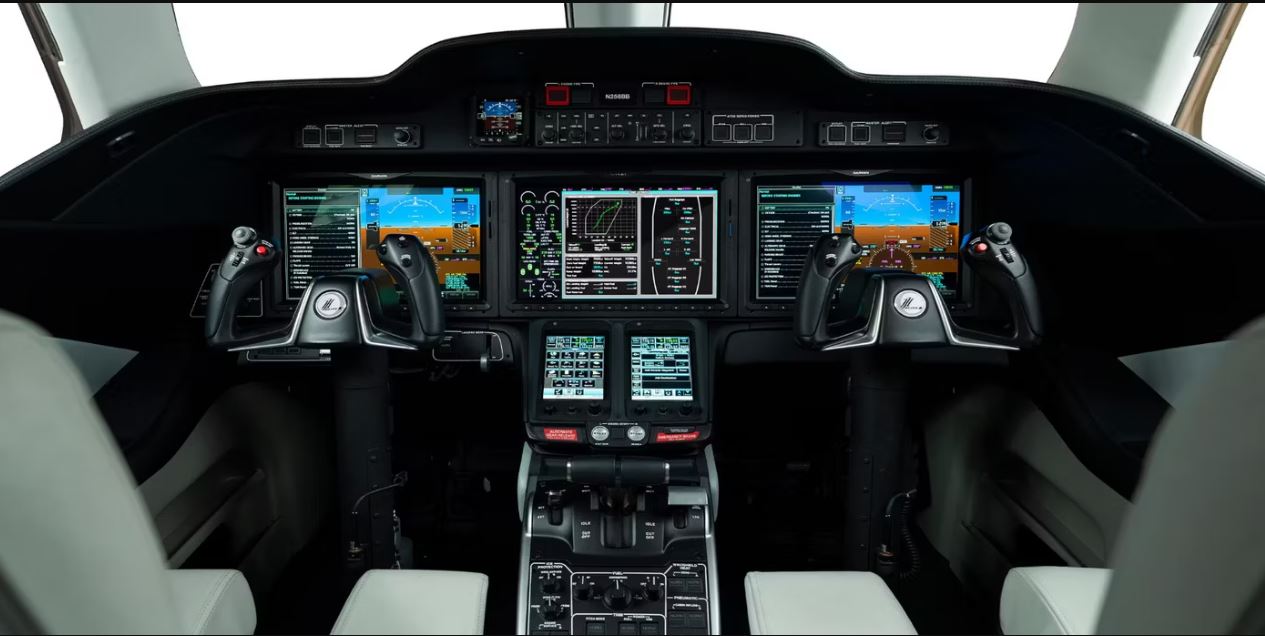HondaJets are light business jets made by the Honda Aircraft Company in the US. The first one flew in 2003, and over 250 have been delivered so far. Known for their advanced automation, HondaJets have a unique cockpit and flight systems. Sky Comparison listed special features of the HondaJet cockpit, focusing on design, avionics, and safety, as highlighted by HondaJet.
HondaJets are renowned for their sleek design, cutting-edge technology, and exceptional performance in the skies. With their efficient engines and aerodynamic features, HondaJets offer a smooth and comfortable flying experience for passengers and pilots alike. The innovative engineering behind HondaJets ensures optimal fuel efficiency and reduced environmental impact, making them a preferred choice for eco-conscious travelers and aviation enthusiasts. Whether it’s for business or leisure travel, HondaJets continue to set the standard for luxury and sophistication in the world of private aviation. Check out our comparison Boeing 767 vs Boeing 787 of the to see how they differ from each other.
1. Avionics
Features Garmin G3000 Package
| SALIENT FEATURES |
|---|
| Bright, high-resolution displays |
| Displays are divided into two pages |
| Intuitive touchscreen interface |
| Automatic flight guidance |
| Weather, charts, traffic, and terrain options |
The HondaJet comes with a state-of-the-art Garmin G3000 avionics package. This system includes special features tailored for light turbine jets. It makes it easy for pilots to keep an eye on sensors and flight conditions, even when flying in bad weather. With the avionics suite, pilots can view multiple systems and sensors using a two-page display, making flying simpler and safer.

To support pilots when they’re focused on flying, audio feedback is provided where needed. The touchscreen is user-friendly, with easy-to-navigate menus, ensuring pilots can access information effortlessly. The G3000 software optimizes flight plans and provides additional options for pilots. Honda pays close attention to detail, positioning the displays at an optimal angle for the pilot’s viewing comfort, reducing the need for unnecessary head movements.
2. Automation and Flight Assistance
Automation reduces pilots’ tasks during flight
| Task | Function |
|---|---|
| Engine startup sequence | Push of a button |
| Taxi lights | Releasing the brakes |
| Landing and strobe lights | Advancing thrust levers |
| Recognition lights | Automated based on flight level |
The HondaJet is known for its high level of automation, which helps lessen the workload for pilots during flights. It takes care of tasks such as starting the engines and managing lights, freeing up pilots to focus on other aspects of flying. The system is also designed to detect any irregularities during processes and take corrective action if needed. This automation plays a key role in enhancing flight safety by minimizing the risk of human errors.

According to Honda Aircraft Company,
“Optimized for safety and ease of operation with three 14-inch high-resolution displays and two touch screen controllers, the HondaJet avionics gives pilots all the information they need, and assists them in aircraft operation. Thanks to its ease of operation, the HondaJet is certified for single pilot flight.”
3. Precise Movements on the Ground
Features steer-by-wire Technology
| Landing gear configuration and systems | |
|---|---|
| Type | Tricycle landing gear design |
| Maneuvering system | Nosewheel Steering System (NSS) |
The aircraft has a remarkable ability to perform a precise 180-degree turn while on the ground, all thanks to its advanced steer-by-wire technology. This technology, known as the Nosewheel Steering System (NWSS), is implemented on the nose wheel, allowing pilots to easily keep the aircraft centered during ground maneuvers. By simply pressing a button, the system calculates the desired angle for the nosewheel as it turns on the pavement.

Instead of needing extra commands from pilots, the systems use airspeed, wheel speed, and tilt information to make precise movements on taxiways. The steering angle adjusts automatically depending on how fast the plane is going and the condition of the pavement. Instead of using air or liquid channels, electrical signals ensure the plane moves accurately and reliably on the ground, even if something goes wrong.
4. Ease of Access
It boasts an ergonomic cockpit design
| Salient features |
|---|
| Angle of cockpit displays |
| Height of the flight deck to the pilot’s eye |
| Ease of access to hand controls |
| Sharp displays with SVT to enhance safety |
| Audio feedback |
Whether it is an automobile or a jet, when it comes to Honda, there is no stone unturned in terms of ergonomics. The space, dimensions, and placement of systems and displays are all designed with great attention to detail. From the angle of the cockpit displays to ease of access to hand controls, the HondaJet cockpit boasts situational awareness through the design.

“The HondaJet cockpit is built for optimum safety based on thoughtful ergonomic design and state-of-the-art situational awareness.”
Despite the small size of the jet and cockpit, pilots are provided with excellent ergonomic features. The flight deck’s design prioritizes both safety and pilot comfort. According to the manufacturer, this design approach ensures a safe and comfortable flying experience for pilots.
5. More space for pilots
HondaJet offers various optional configurations
| Features | Customization |
|---|---|
| Three inches of additional legroom for pilots | Optional |
| Extended seat track | Optional |
| Sheepskin covers for pilot seats | Standard (unless altered) |
Despite being one of the smallest and lightest business jets, the Honda Aircraft Company ensures that there is plenty of room for pilots in the cockpit. Whether it’s by offering extra legroom or customizable seat covers, the HondaJet can accommodate pilots comfortably. Customers also have the option to choose a cockpit configuration with an additional three inches of legroom for pilot seats.

This means that the seat track can be extended and adjusted, providing pilots with more flexibility and easier access. In addition to many other features, HondaJet also offers breathable sheepskin covers for pilot seats. In the Elite II version, the manufacturer plans to introduce new flight deck features, such as auto-throttle and emergency autoland capabilities.
Conclusion
In conclusion, the HondaJet stands out as a remarkable achievement in the world of aviation, combining advanced technology, ergonomic design, and exceptional performance in a compact and efficient package. With its innovative features such as the Garmin G3000 avionics package, advanced steer-by-wire technology, and spacious cockpit, the HondaJet offers a unique flying experience that prioritizes both safety and pilot comfort. From its precise ground maneuvers to its customizable cockpit configurations, the HondaJet sets a new standard for luxury and convenience in private aviation. As Honda Aircraft Company continues to push the boundaries of innovation, the future looks bright for this extraordinary aircraft.



